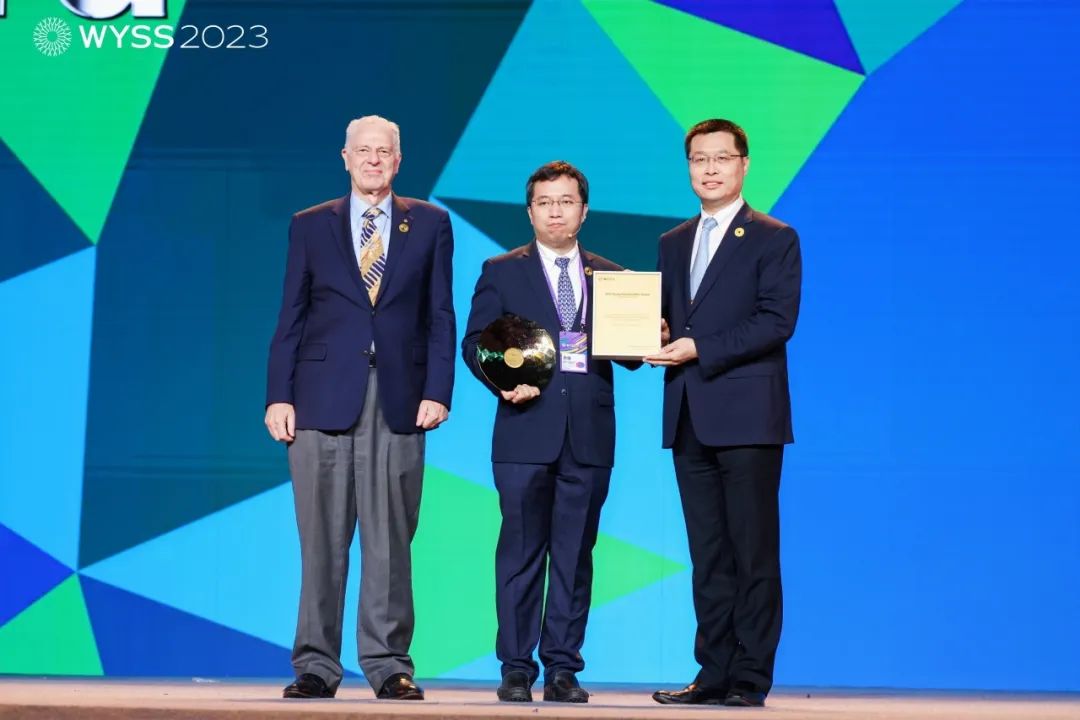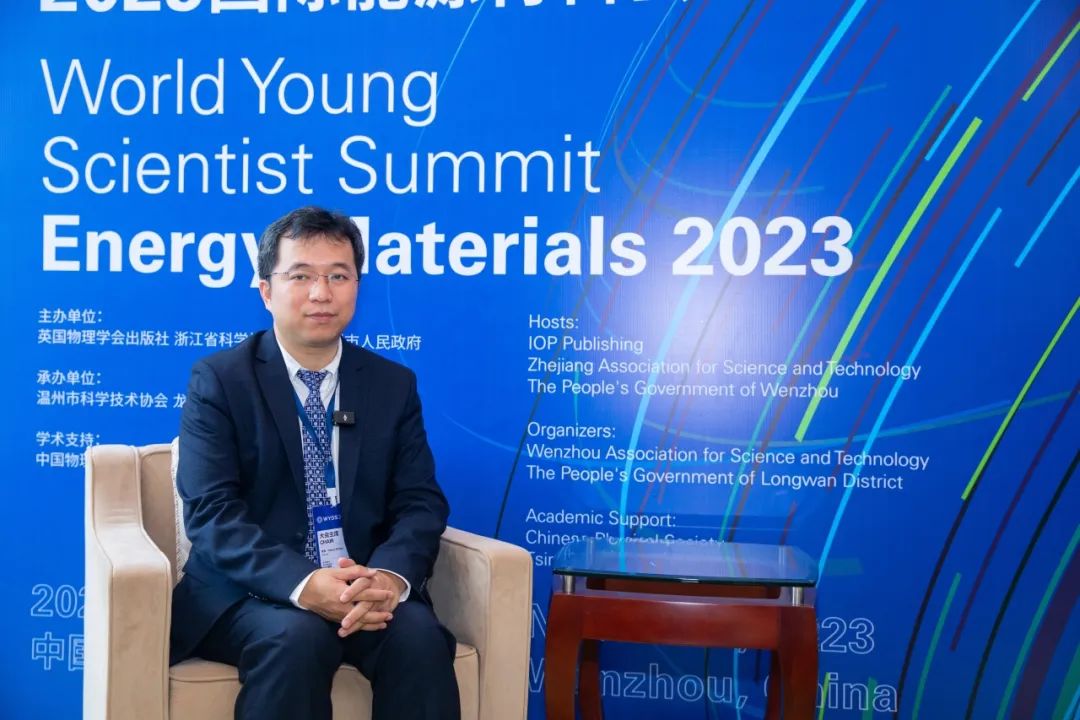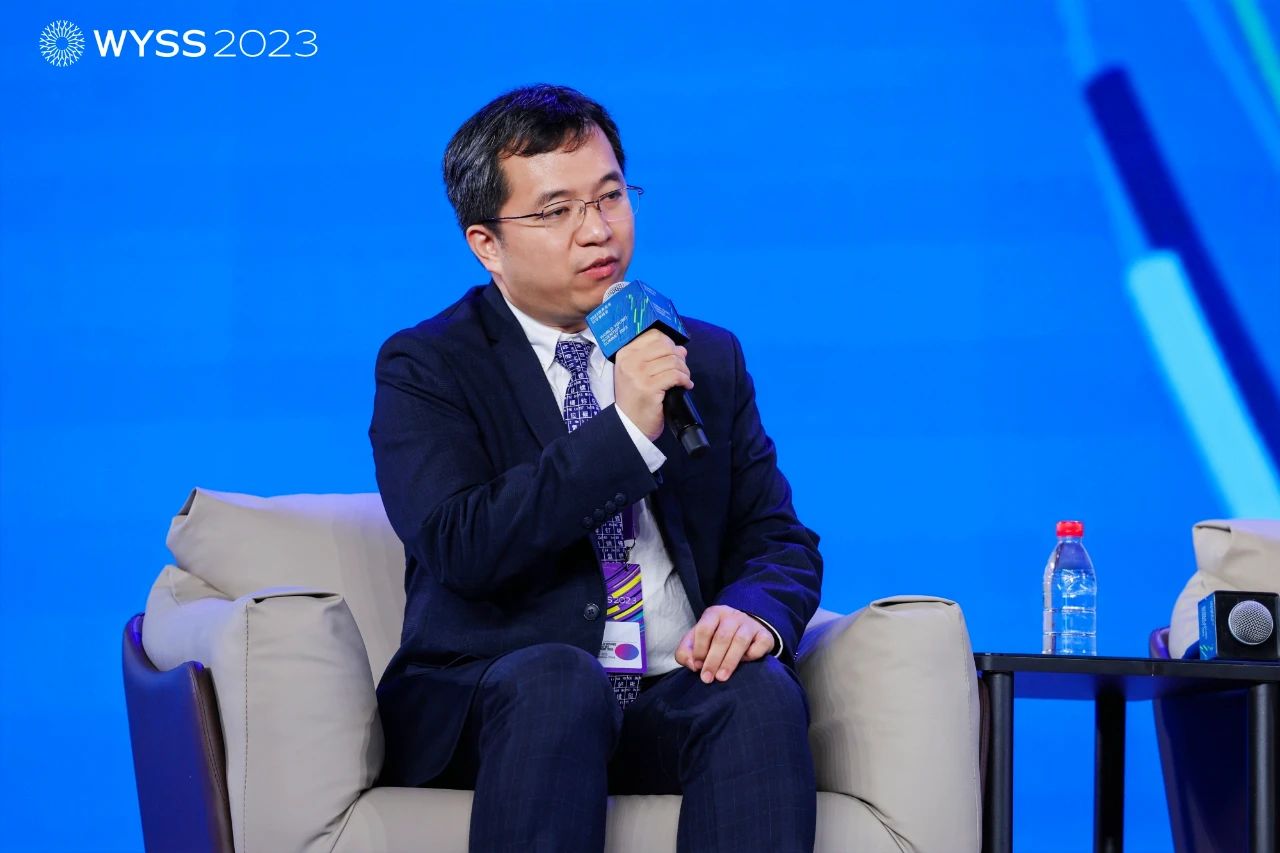The Energy Materials 2023, one of the main forums of the WYSS 2023, brought together outstanding scholars from around the world to focus on cutting-edge advanced materials science, energy, and interdisciplinary sustainability science, to share and discuss the latest research results and technical experiences in energy materials science.
The inaugural “Young Scientist SDGs Award” was presented at the opening ceremony of the WYSS. Professor Zhang Qiang from the Department of Chemical Engineering at Tsinghua University was awarded for his contributions in the field of energy chemistry and energy materials.
Let’s listen to his insightful remarks during the forum.

In the field of energy materials science, what roles should government, businesses, and society play respectively to promote the innovative development of scientific research and technology?
Zhang Qiang: The government primarily serves as the manager of society, being able to allocate more resources on behalf of the public to support some non-commercial charitable activities; businesses are the main drivers of innovation, needing to translate the impetus of technological innovation into technological productivity, completing a process of scaling and future marketization; the public are actually beneficiaries from the technological innovation and energy transformation from current fossil energy to new energy, and from continuous growth of carbon dioxide to carbon peaking and neutrality, thus achieving a better quality of life. Therefore, the public also needs to further understand that, with the advancement of science and technology, businesses act as the primary agents of innovation.

Scientific progress relies on support and collaboration of various parties. What aspects of support and assistance do you think the field of energy materials science needs?
Zhang Qiang: In this field, I believe firstly, it requires sufficient patience because innovation is not planned but rather takes shape through the continuous accumulation of scientists’ creative ideas; secondly, a major aspect is the emergence of new energy technologies. For the public, it is necessary to gradually reduce costs to meet current market expectations through technological innovation, which also requires a process of scaling and future marketization.

Do you have any expectations for the future development of the energy materials science?
Zhang Qiang: Energy materials science is the foundation supporting the energy revolution, and there are two aspects requiring careful consideration. Firstly, from a scientific standpoint, whether there are more original innovations and changes in the energy paradigm. Secondly, at the level of energy technology, whether more clean, safe, and affordable energy technologies can be provided to enable the transition from fossil energy to new energy.
